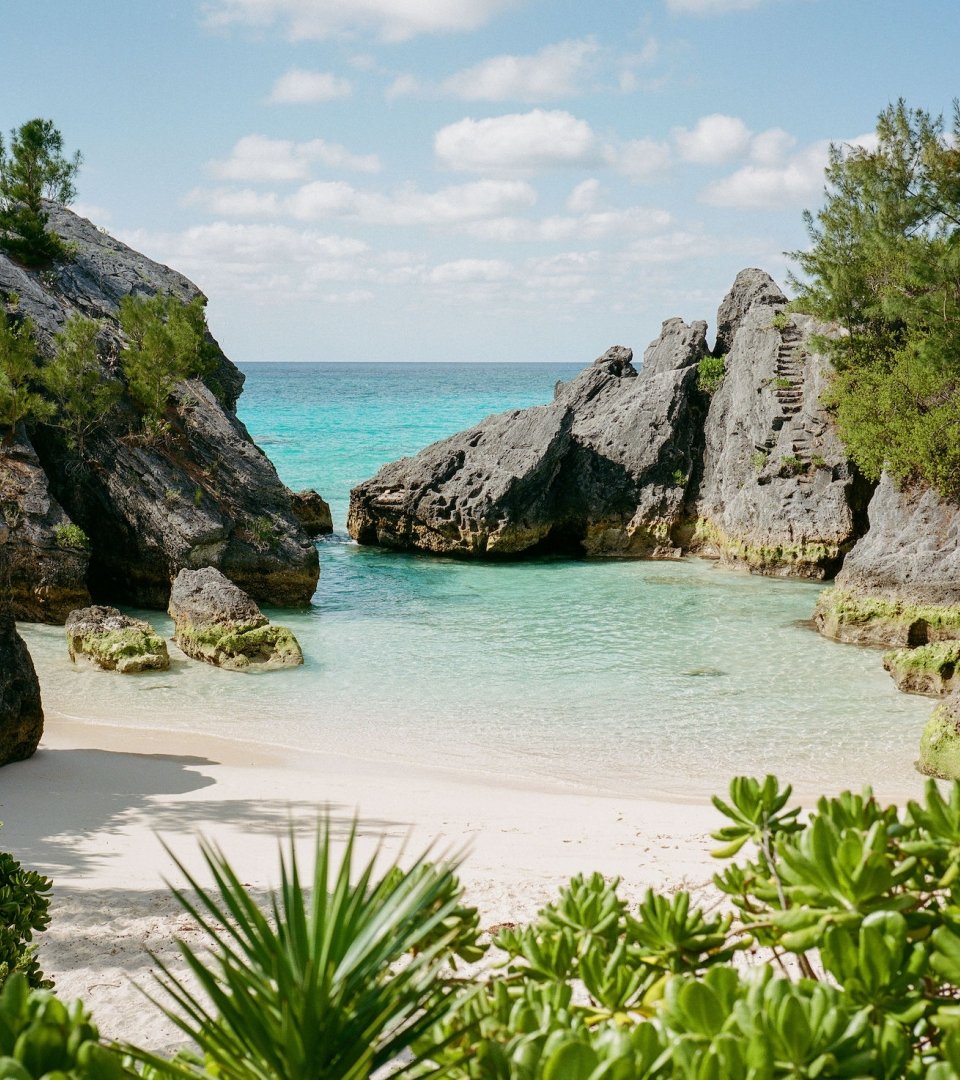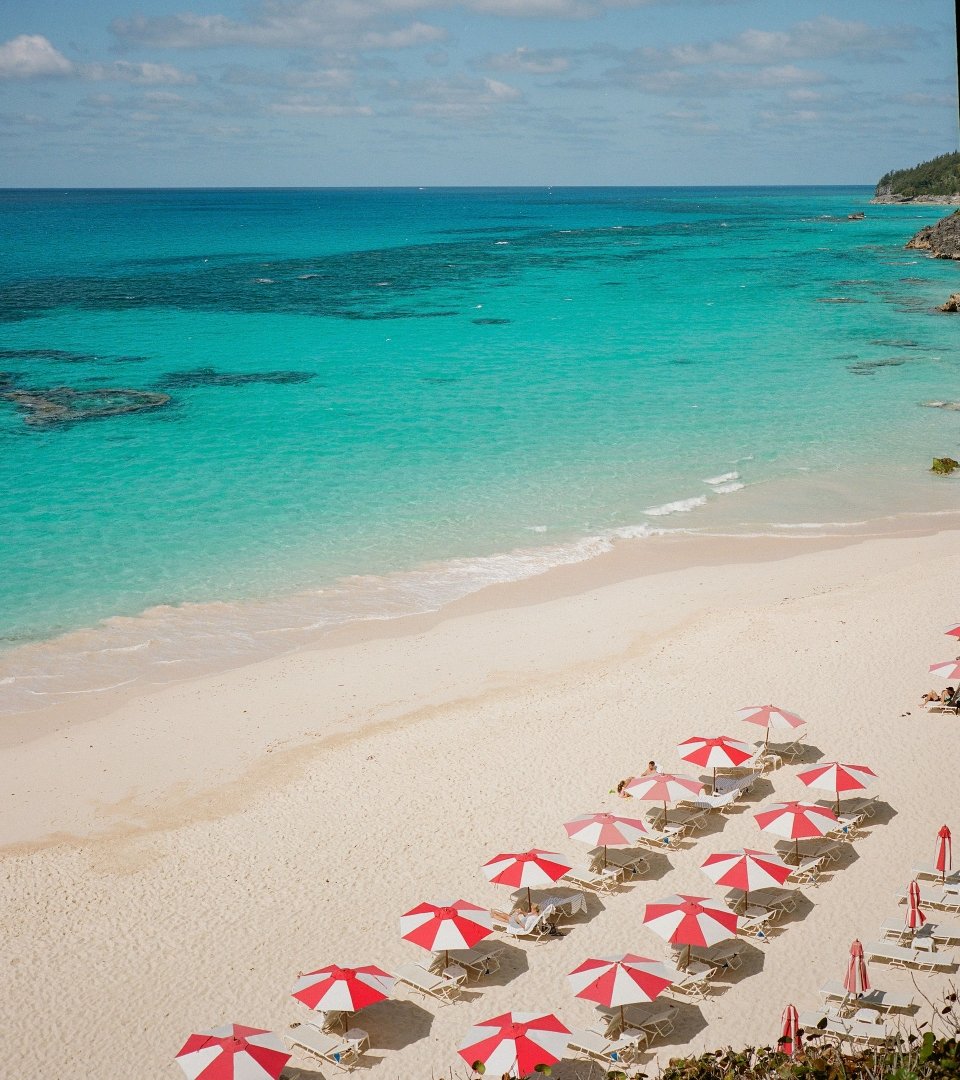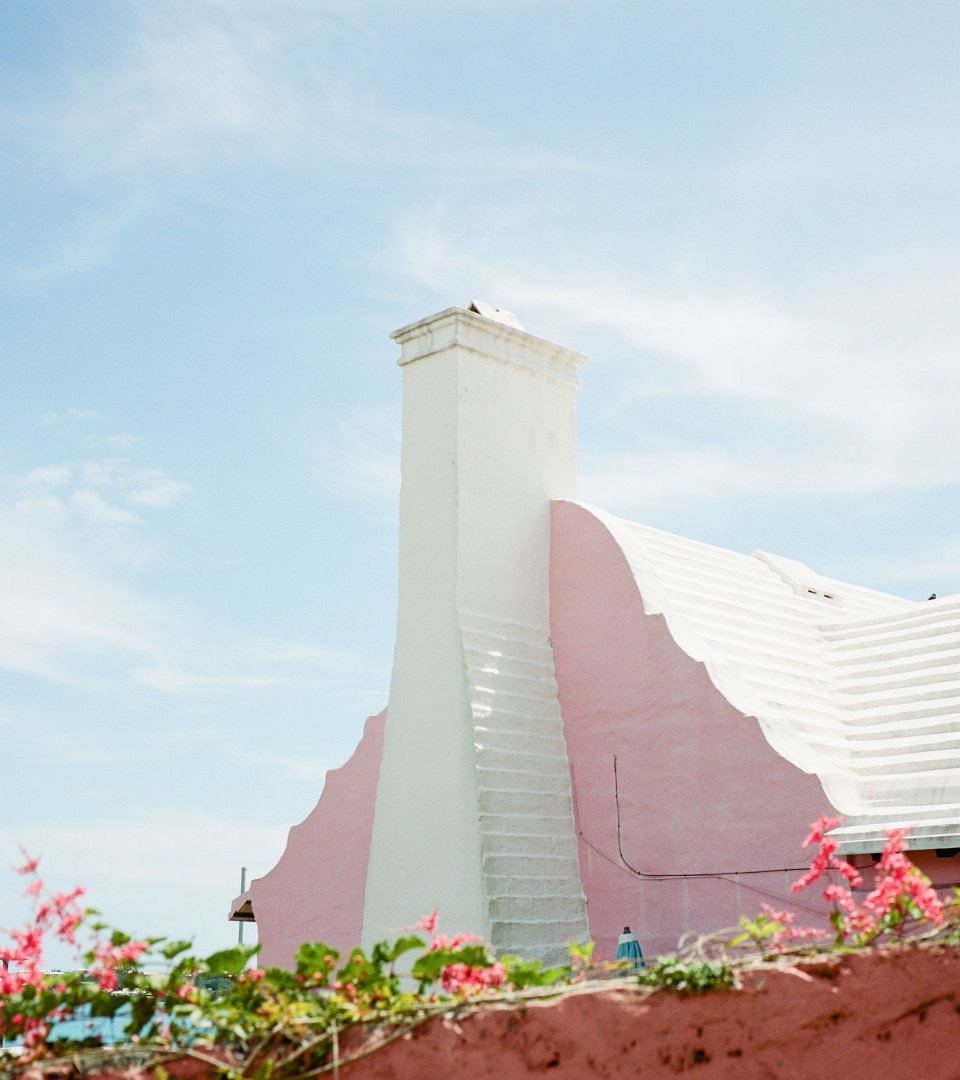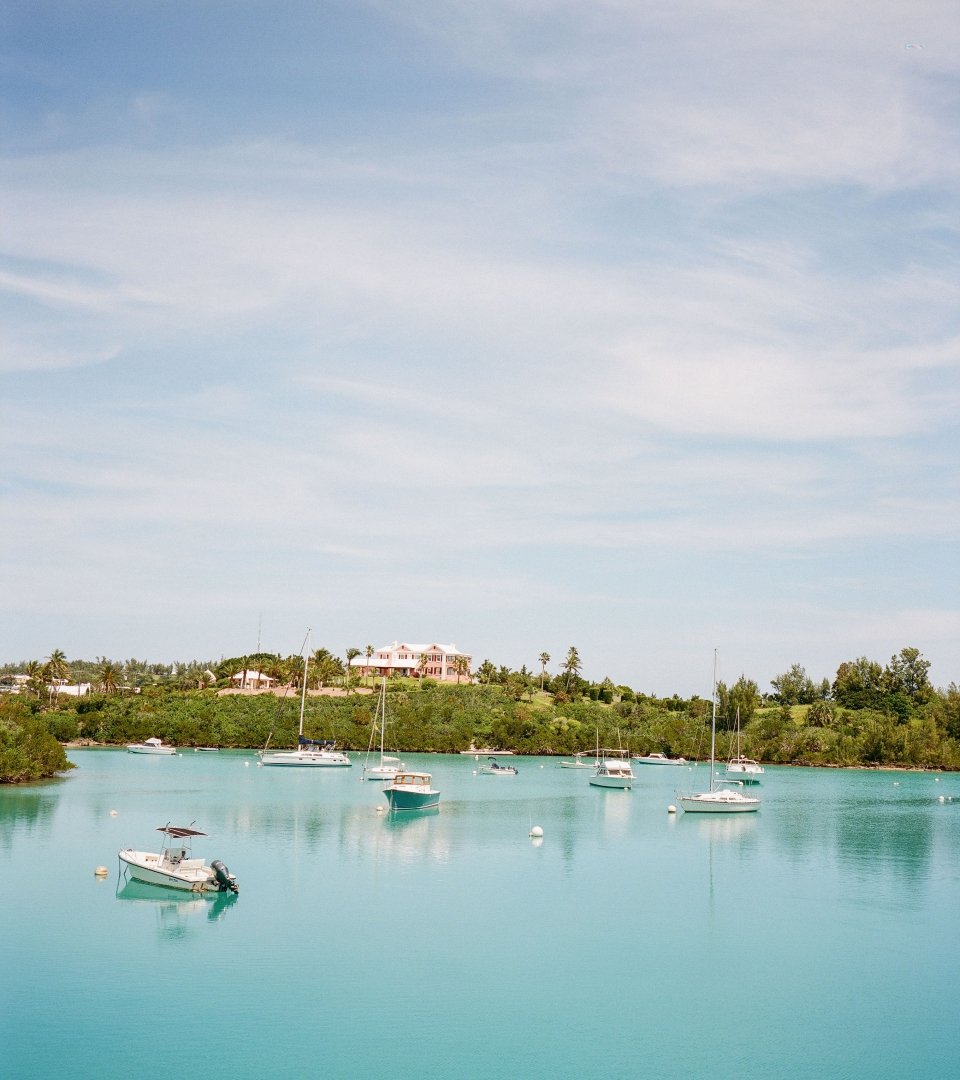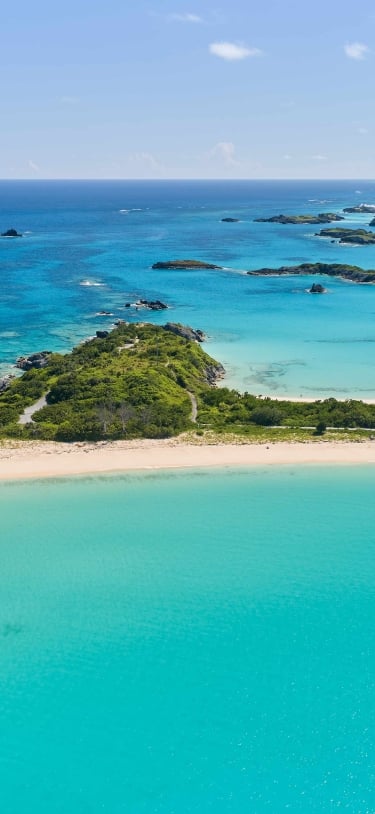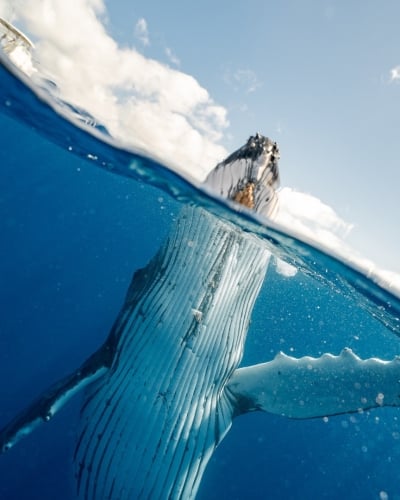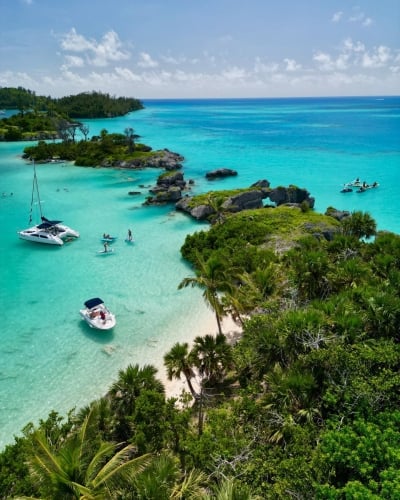Bermuda By Season
Experience an endless summer in Bermuda, where fall season carries on with warm weather ideal for on-the-water adventures and outdoor sports, from golf to pickleball. Plus, spiny lobster season is back in action.
During winter, Bermuda offers sun-splashed days where you can enjoy a perfect mix of nature and culture. It’s prime time for exploring natural wonders, indulging in local flavours, and soaking up local art.
The weather is warming and flowers are blooming. Tree frogs are singing and whales can be spotted from shore. Spring is a great time to partake in festive traditions, outdoor adventures, and on-the-water fun.
Summer in Bermuda was made for beach days, big events, and culture-infused nights. After relaxing on pink-sand shores, you can experience a spirited cricket match or celebrate at an electrifying festival.
-
Current Conditions
-
Forecast
15 °CSaturdayLight Showers17 °CSundayCloudy19 °CMondayCloudy21 °CTuesdayScattered Showers22 °CWednesdayLight Showers
Climate & Weather

Our Climate
Thanks to the Gulf Stream and the Bermuda-Azores High, Bermuda enjoys a temperate, sub-tropical climate. The Gulf Stream pushes warm, equatorial water to the west and north of the island, up from the Gulf of Mexico. This ensures comfortable temperatures year round, from mid 60s in winter to mid 80s in summer. The Bermuda-Azores High is a high-pressure zone that lies east of the island in summer, shielding Bermuda from storm systems to the north and wafting light, southerly winds its way.
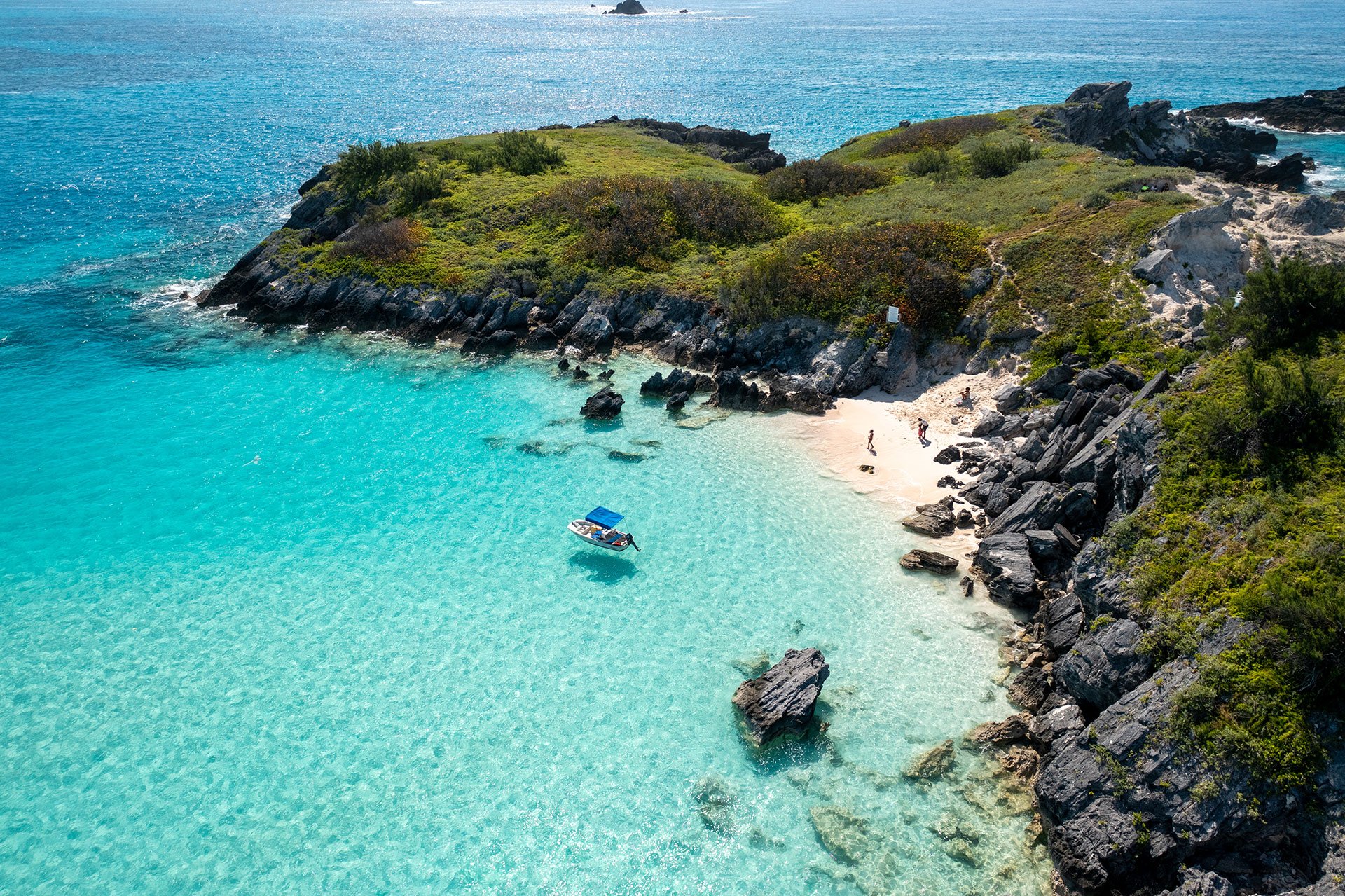
Average Temperatures
Bermuda is a year-round destination offering a variety of island experiences any time of year. The island doesn’t experience the heat of the Caribbean (it’s about 1,000 miles north) or the chills of London or the northeast U.S. Daytime high temperatures in Bermuda average 65 degrees in January, 71 in April, 84 in July, and 80 in October. June through August brings southerly breezes, which makes evenings delightful. The difference between water and air temperatures averages 2 degrees.
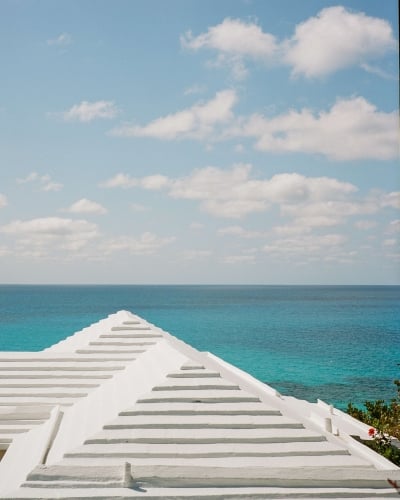
Annual Rainfall
Rain isn’t likely to spoil your Bermuda vacation. Unlike other islands, Bermuda has no rainy season. And you won’t hear Bermudians complain about rainfall because they collect it for drinking water via their white slate roofs, pipes, and underground tanks. Heavier downpours (typically at night in the summer) don’t usually last longer than a couple of hours; the sun rarely disappears for long. If you do encounter a day of rain, check out the island’s great indoors.
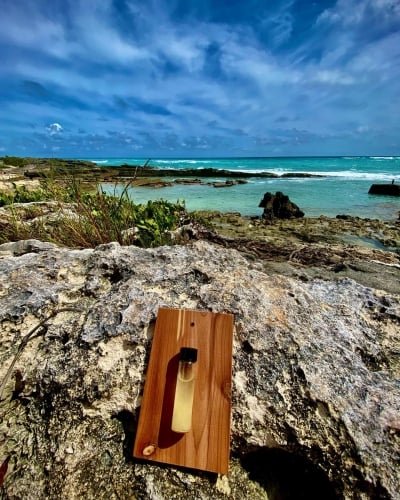
Homespun Barometers
Beyond satellites and radar, some traditional forecasting methods are still in use. Some old-timers turn to shark oil when the weather is unsettled. Cloudy shark oil signals a storm – read more about the shark oil tradition. There’s also the old Weather Stone at Fort Scaur in the West End. The instructions are tongue-in-cheek: a dry stone = it’s not raining; a shadow underneath = the sun’s shining. The noticeboard adds, “If ever it is white on top, it is snowing.”
